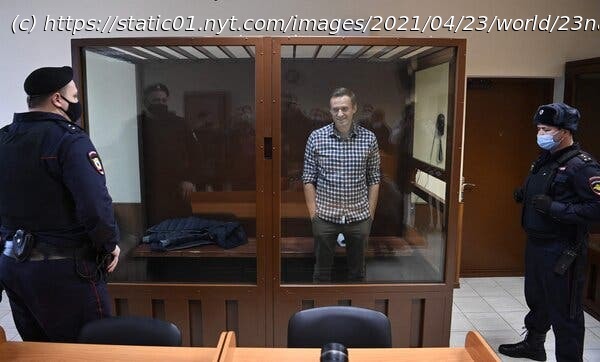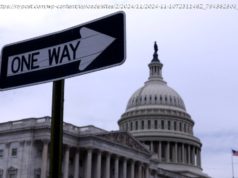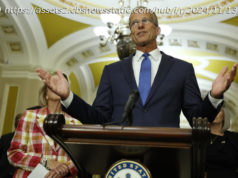The imprisoned opposition leader said he was responding to calls from his doctors and a belief that he had accomplished at least some of his goals.
Aleksei A. Navalny, the imprisoned Russian opposition leader, ended a three-week hunger strike on Friday that had embarrassed the Kremlin, drew international criticism and sparked protests at home. The 24-day hunger strike, which Mr. Navalny said had left him so skinny he looked like a “skeleton, swaying, walking in its cell,” became the latest battle in a yearslong, high-stakes competition between President Vladimir V. Putin and his most prominent domestic political opponent. Mr. Putin refuses even to speak Mr. Navalny’s name while the police and prosecutors harry his political organization with arrests and, this month, a move to ban it outright. Mr. Navalny is serving a prison sentence of more than two years for a parole violation of a conviction he says was politically motivated. But even in prison he managed to confound Mr. Putin with a quandary: either concede to his demands for medical treatment by his personal doctors or risk creating a martyr. Through the years Mr. Navalny has run a highly effective investigative unit that has embarrassed Mr. Putin and discredited his government with slickly produced videos exposing corruption at the highest ranks. He routinely refers to Mr. Putin’s United Russia party as a gang of “crooks and thieves.” Mr. Navalny has also continued to set the agenda for the political opposition ahead of parliamentary elections scheduled for the fall. His organization turned out tens of thousands of street protesters on Wednesday, stealing some of the limelight from Mr.






